Contraception and family planning
We offer a wide range of short and long term contraception and family planning methods.
Traditional or modern contraceptive methods?
There are both traditional and modern contraceptive methods. All traditional methods are not reliable as there is no scientific proof of their effectiveness.
Modern methods of family planning
There are two types of modern contraceptive methods:
Reversible
Reversible methods can be short-term and long-term methods, and are suitable for those who want to have children in the future.
Permanent/non-reversible methods.
These methods are for people who do not want to have children in the future.
Ready to visit a clinic?
If you’d like to come to a clinic to get a method of contraception, please find a clinic near you and visit us.
Take the contraception quiz
Our online contraception counsellor will help you understand the best contraception methods for you based on your lifestyle, preferences and medical circumstances.
- Personalised advice in a few minutes
- Tailored pros and cons for each method
- Ability to compare different methods
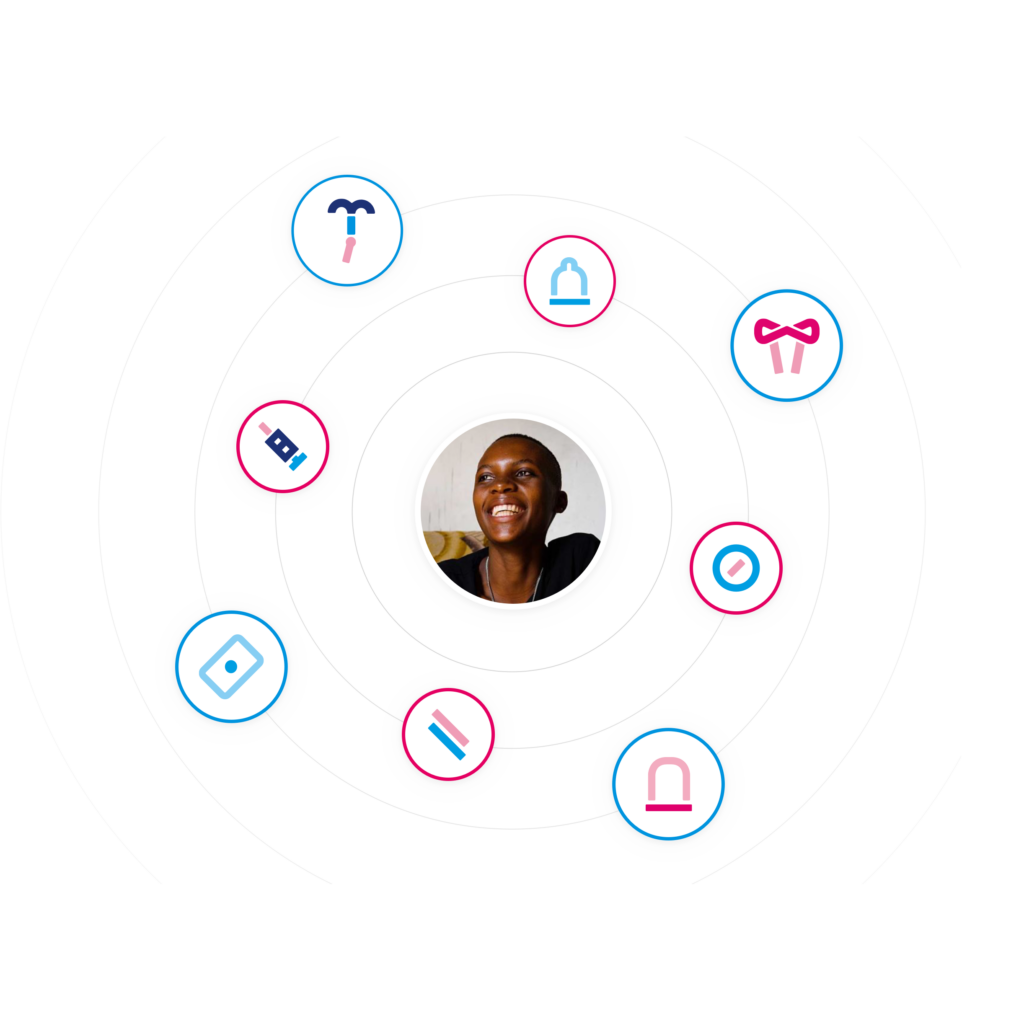
Services offered
Benefits of Family Planning/Contraception
Prevents Pregnancy-related Health Risks in Women
- A woman’s ability to choose if to and when to become pregnant has a direct impact on her health and well-being.
- Family planning allows spacing of pregnancies and can delay pregnancies in young women who have higher risk of health problems and death from early childbearing.
- It prevents unintended pregnancies, including those of older women who face increased risks related to pregnancy.
- Family planning programmes avails women the choice to limit the size of their families and to determine when to do so. Evidence suggests that women who have more than 4 children are at increased risk of maternal mortality.
- By reducing rates of unintended pregnancies, family planning also reduces the need for unsafe abortion.
Reduces Infant Mortality
- Family planning can prevent closely spaced and ill-timed pregnancies and births, which contribute to some of the world’s highest infant mortality rates.
- Infants of mothers who die as a result of giving birth also have a greater risk of death and poor health.
Helps prevent HIV/AIDS
- Family planning reduces the risk of unintended pregnancies among women living with HIV, resulting in fewer infected babies and fewer orphans.
- In addition, male and female condoms provide dual protection against unintended pregnancies and against STIs including HIV.
Empowers People and Enhances Education
- Family planning enables people to make informed choices about their sexual and reproductive health.
- Family planning represents an opportunity for women to pursue additional education and participate in public life, including paid employment in non-family organizations.
- Additionally, having smaller families allows parents to invest more in each child. Children with fewer siblings tend to stay in school longer than those with many siblings.
Reduces Adolescent Pregnancies
- Pregnant adolescents are more likely to have preterm or low birth-weight babies.
- Babies born to adolescents have higher rates of neonatal mortality.
- Many adolescent girls who become pregnant have to leave school, which has long-term implications for them as individuals, their families and communities.
Slows Population Growth
- Family planning is key to slowing unsustainable population growth and the resulting negative impacts on the economy, environment, and national and regional developmental efforts.
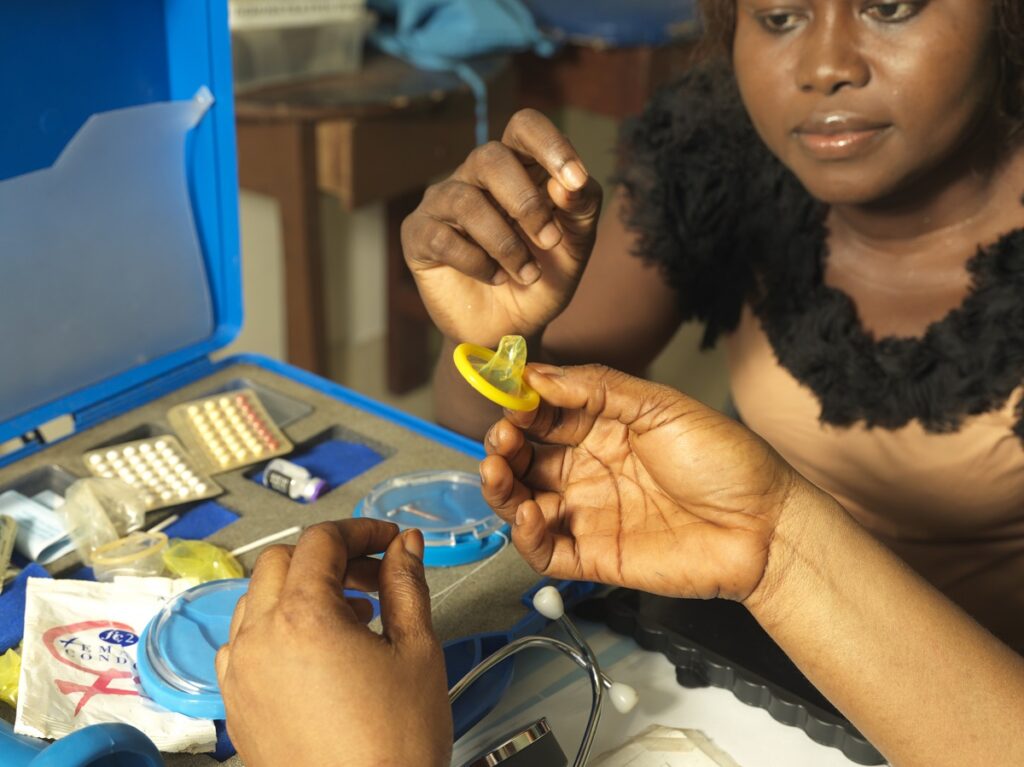
Committed to providing choice
For those women who choose to prevent a pregnancy, we provide a full range of modern family planning methods, along with counselling about each option so they can make an informed choice that’s right for them.
We’re committed to providing choice in family planning. We offer both short term methods such as condoms, and long term methods, such as IUDs and implants, allowing clients to make informed choices about the most suitable contraception for them.
As well as expanding choice in contraceptive methods, we’re also increasing choice in the types of outlets where people can access family planning services.
A matter of life and death
For some, not being able to control the number and spacing of their children is a matter of life and death.
Some 289,000 women die each year – mostly in poor countries – as a result of pregnancy and childbirth. For others, having no access to reproductive choice locks them into extreme poverty.
At Marie Stopes, our goal is to give people a choice, so they can manage their own families, and their own futures.
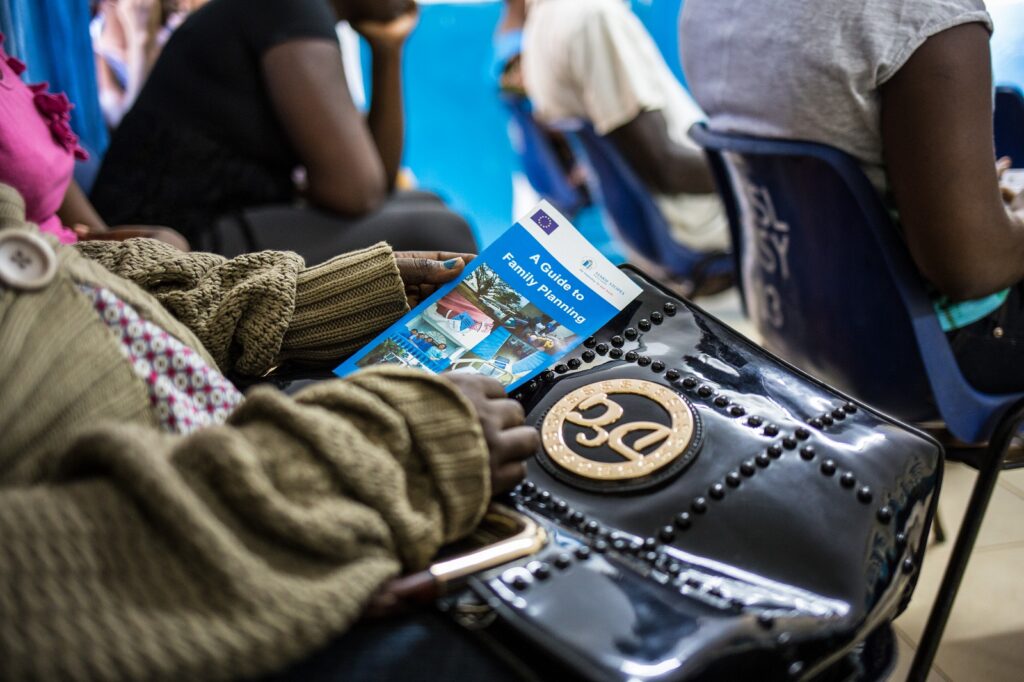
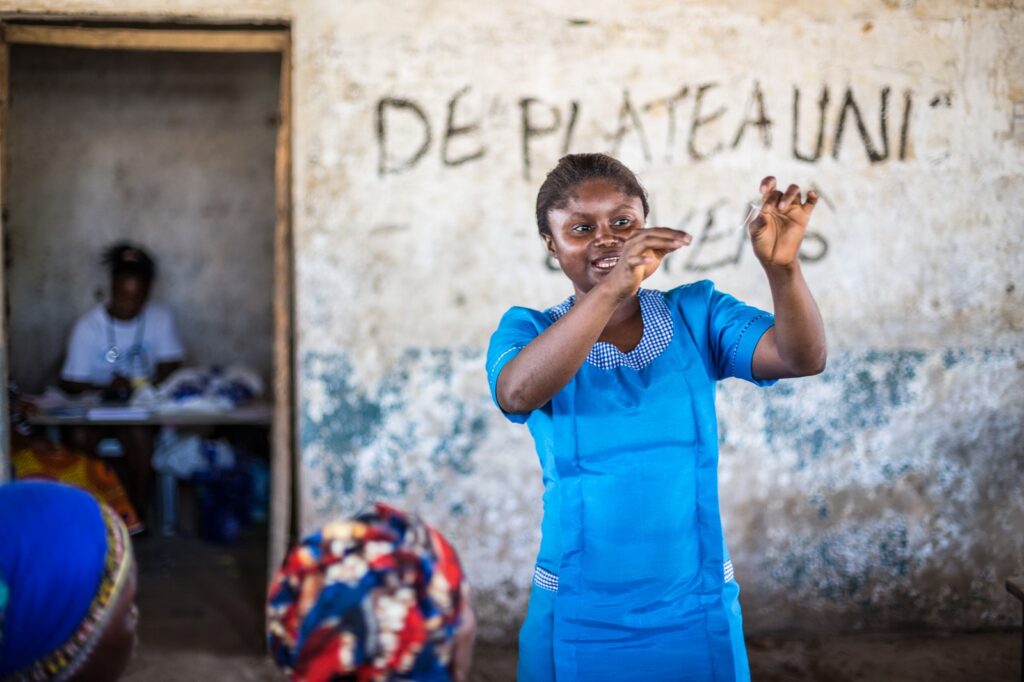
Reaching the under-served
In order to reach the people who need our services most – those in remote rural areas or poorly served urban slums – we use a variety of different delivery channels.
Mobile outreach teams travel out from our centres to take family planning services to hard-to-reach communities in more than 30,000 locations.
We also work with networks of existing private healthcare providers and now have 4,100 providers including doctors and midwives who belong to our innovative social franchise network, driving up quality and choice in contraception services.
Delivering impact
We measure our impact in family planning by estimating the number of couple years of protection, or CYPs, we have provided.
Over the past five years, our family planning services have expanded in all the regions we work in.
If you’d like to ind out more about our impact, including highlights of our most recent reports, use the link below.
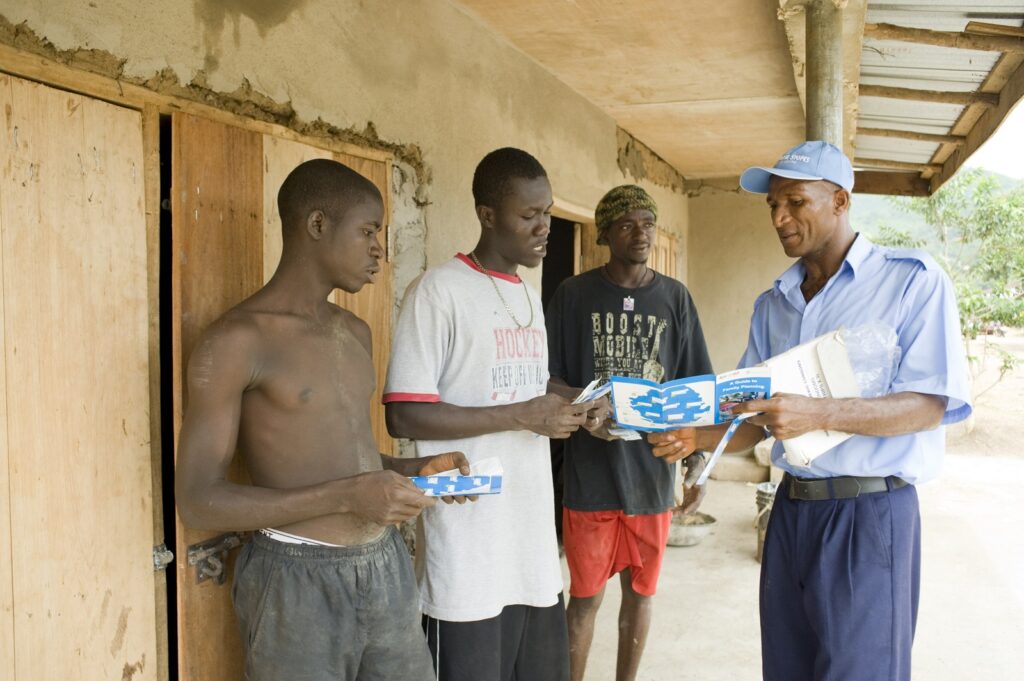
If you’re starting to use contraception for the first time, or thinking about using a new method, it’s a good idea to have a full consultation.
Call us toll-free for a confidential chat









